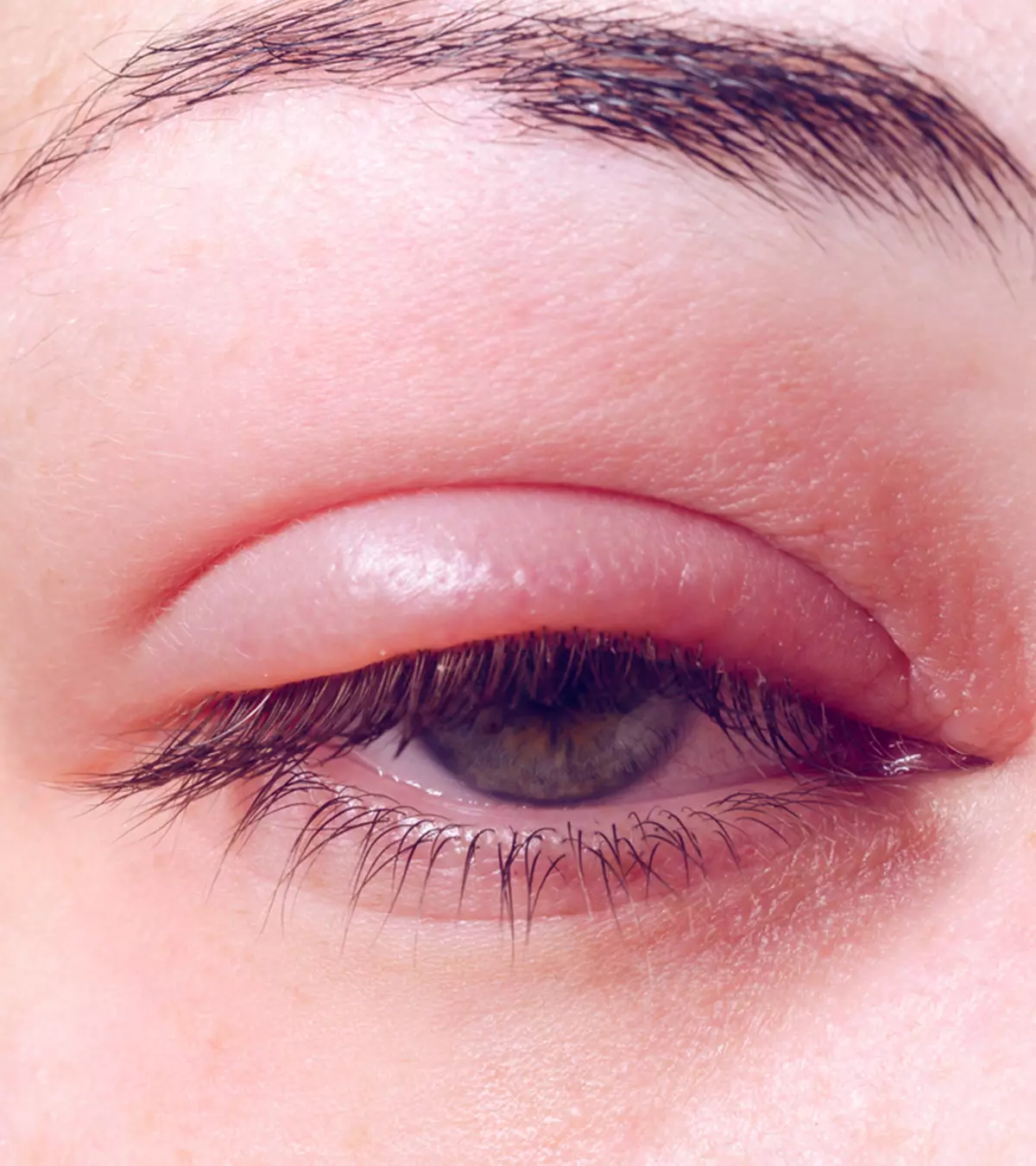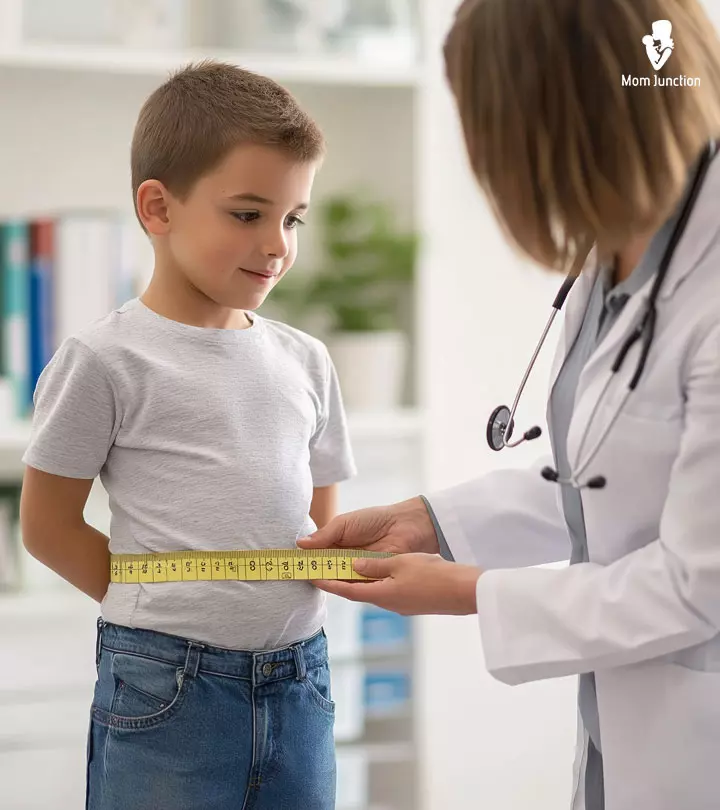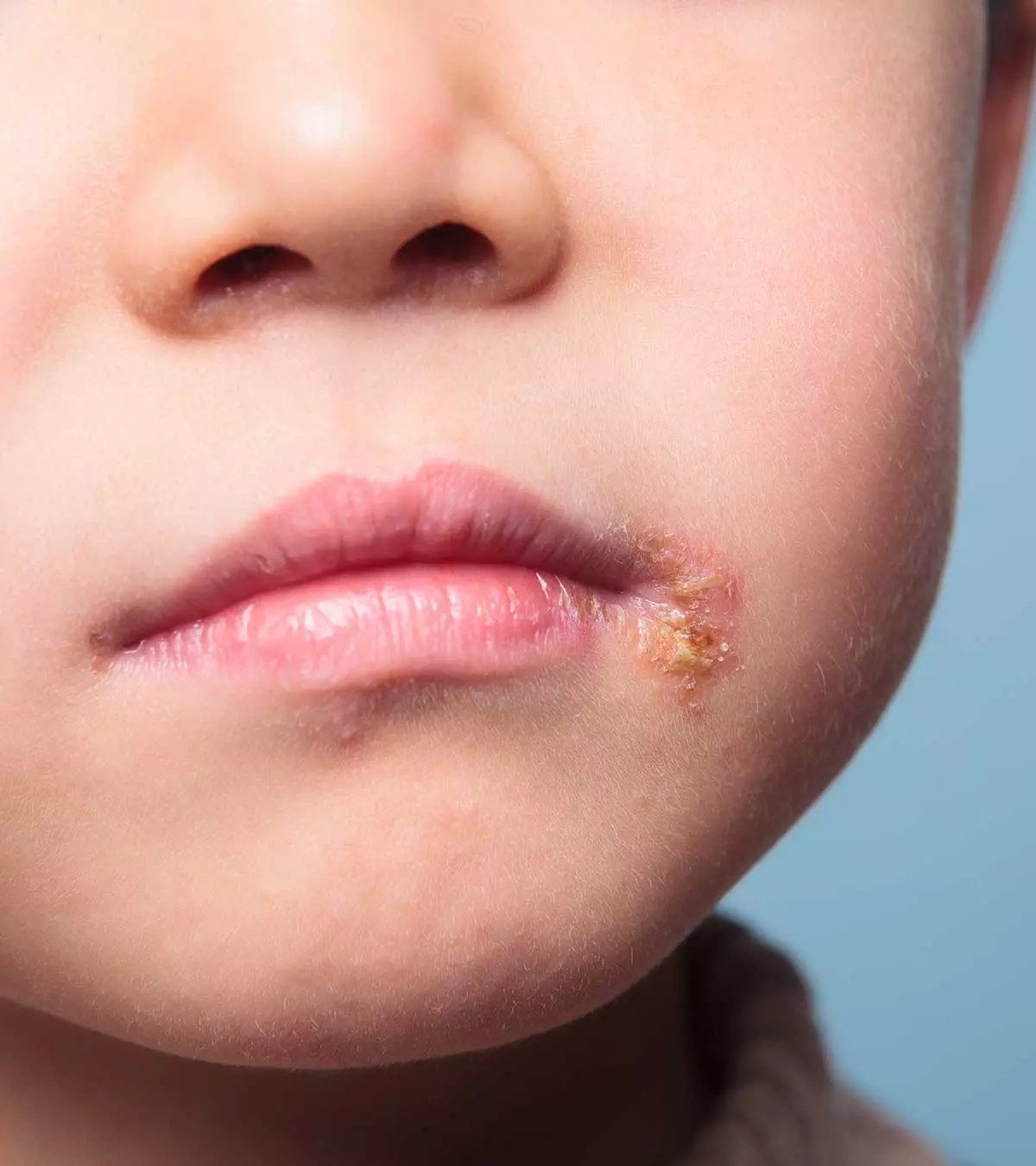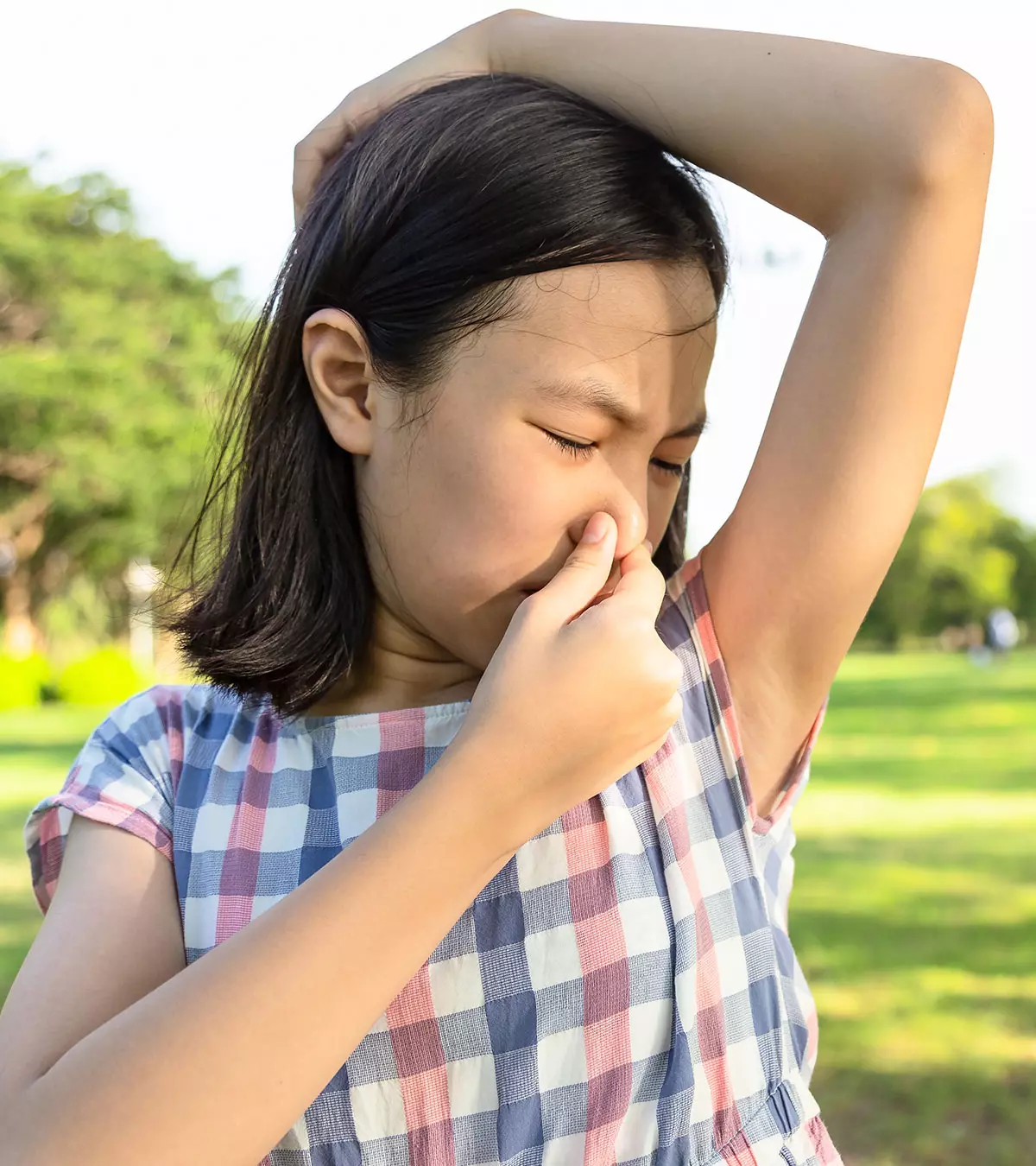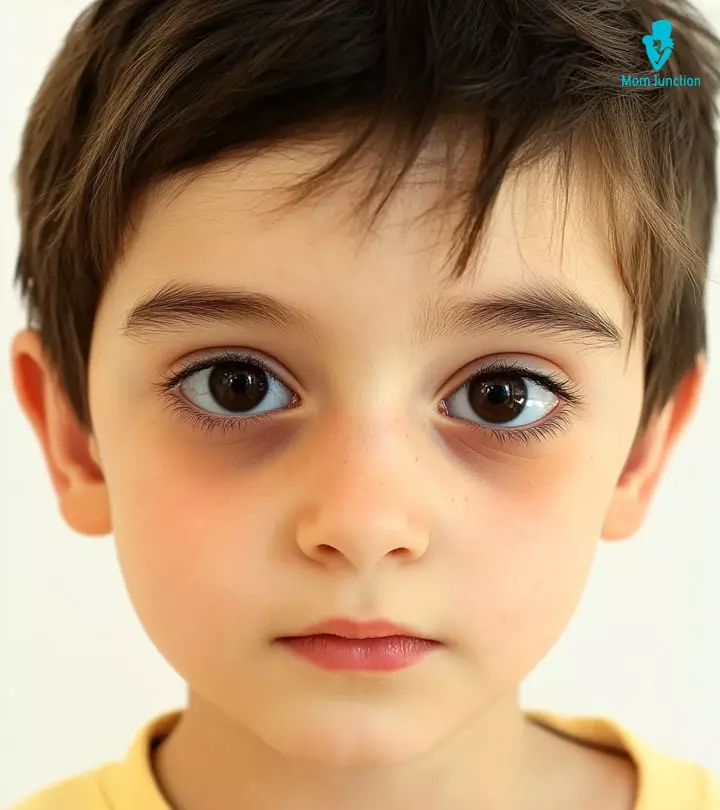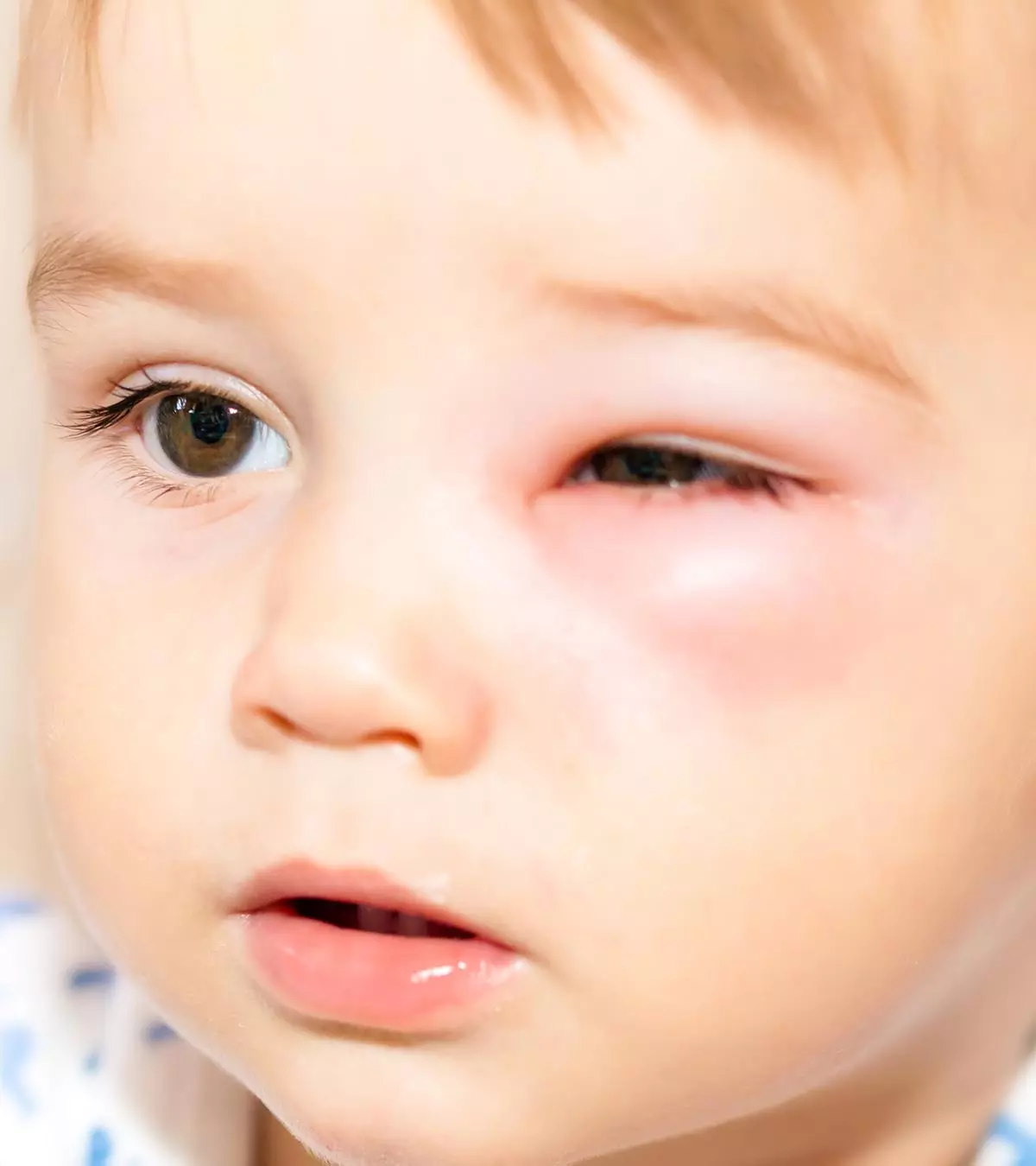
Image: iStock
Irregular periods in teens are normal in the initial years of menstruation, and they become regular over time (1). However, it is recommended to visit a gynecologist to ensure that these menstrual irregularities are not due to underlying conditions such as anatomical anomalies or hormonal imbalances. Causes of irregular menstruation in girls can range from hormonal changes to less calorie intake and excessive physical activity.
Keep reading to know the causes, complications, diagnosis, and treatment of irregular periods in teens and when to seek medical care.
Key Pointers
- Menstrual cycles that are longer or shorter than 32 days are considered irregular and can be caused by hormonal fluctuations in teenagers.
- Physical exertion, inadequate nutrition, high carbohydrate intake, thyroid hormone imbalance, overeating, and stress can all cause irregular periods.
- Irregular periods may increase the risk of anemia, osteoporosis, and fertility problems.
- Seek medical attention if irregular periods are accompanied by severe bleeding and abdominal cramps.
- Treatment involves making lifestyle changes to maintain a healthy body. Depending on the severity, doctors may prescribe medications to treat irregular menstruation.
What Are Irregular Periods?
A menstrual cycle is considered irregular if it lasts longer or shorter than the average. Hormonal fluctuations may cause menstrual cycle variations in teenagers.The interval between regular periods ranges from 20 to 45 days, with an average of 32 days, during the first two years after the menarche (first period). Later on, the typical menstrual cycle length can range from 21 to 34 days, with an average of 28 days (2).
Irregular periods are different from amenorrhea (missed period). However, the factors contributing to irregular periods may also play a role in the development of amenorrhea. Amenorrhea can be of two types (1):
- Primary amenorrhea, where a girl does not get her first period by the age of 15
- Secondary amenorrhea, where, after starting to menstruate, she misses the period for more than three months. This may be due to physical or emotional factors.
Causes Of Irregular Periods In Teens
In most cases, it is normal for teenagers to have menstrual cycle irregularities as part of bodily changes, and they resolve as they get older.
The following are the reasons for irregular menstruation in a teen (3):
- Medications
- Too much workout

Heavy menstrual flow and abnormal uterine bleeding (irregular bleeding) may occur in teens due to conditions such as blood coagulation disorders, ovarian problems, or hormonal variations.
According to the Centers for Disease Control and Prevention, in the US, one in five girls and women experience heavy menstrual bleeding; among them, one in four has a bleeding disorder.
Note: Amenorrhea or a missed period in teens can be caused by the above-listed factors. Seek medical help if your teen has menstrual irregularities or missed menstruation.
 Point to consider
Point to considerComplications Of Irregular Periods In Teens
Irregular periods in a teen may increase the risk of developing (2):
- Anemia: If your teen has frequent and heavy menstruation, there is a risk of anemia due to blood loss.
- Thinning of bones: Often, irregular or missed periods are associated with low estrogen levels. This may result in osteoporosis (thinning of the bones) over time and make them vulnerable to fractures.
- Fertility problems: Irregular periods could continue until the reproductive years and may interfere with fertility.
Although irregular periods are normal in most teens and disappear after a few years, it could impact the quality of life. Seek medical help to identify and treat the underlying causes to prevent complications.
 Did you know?
Did you know?When To See A Doctor?
Seek medical consultation at menarche itself. You may also visit the doctor if you are concerned about the irregular cycles in your teen.
The following changes may require the consultation of a gynecologist (3):
- Regular cycle changes to irregular
- Periods occur in less than 20 days
- There is more than 45 days gap between cycles
- Menstruation lasts more than seven days
- Experiences severe cramping or abdominal pain
- Bleeds between periods

- Has amenorrhea (no menstruation for 90 days or three months)
- Has menorrhagia (heavy bleeding), soaking more than one pad in one to two hours
- A personal or family history of bleeding disorders
- A possibility of pregnancy
- Excess body and facial hair growth
Early diagnosis and treatment may help to improve the outcome if a teenager has menstrual problems due to some underlying conditions.
Diagnosis Of Irregular Periods In Teenagers
Your doctor diagnoses irregular periods by evaluating the menstrual patterns and health history. It will be easier to diagnose if you have a menstrual chart or calendar.
Your doctor may order the following tests to identify the causes of irregular menstruation (4):
- Blood tests: The hormonal levels and coagulation time of blood can be obtained from blood tests. These may also help identify pregnancy and complications of heavy bleeding, such as anemia.
- Pelvic ultrasound: The sonographic imaging of the pelvic area could help identify any physical abnormalities in the reproductive organs.

Note: Charting menstrual days can be helpful to identify menstrual cycle fluctuations. You may encourage your teen to do this on a menstrual period calendar.
Treatment For Irregular Periods In Teens

Irregular periods may not require treatment in most teens. The doctor may suggest lifestyle changes such as following a healthy diet, exercising, etc., to maintain healthy body weight and nutritional status. However, if the menstrual irregularities interfere with her quality of life and can not be managed, hormonal treatment, including cyclic progesterone and oral contraceptives, may be prescribed.
If her period problems are due to underlying diseases, your teen may require treatment for those.. This could include a correction of the thyroid hormones, injection of clotting factors for bleeding disorders, psychotherapy, and medications for eating disorders.
Surgical interventions are recommended for menstrual irregularities caused by structural abnormalities (5).
Home Remedies For Irregular Periods In Teens
If your teen has irregular menstruation due to lifestyle factors, you may encourage them to develop new healthy habits.
The following lifestyle changes could help reduce the chances of menstrual cycle abnormalities (6):
- Performing moderate-intensity exercises
- Maintaining a healthy weight
- Consuming less sugar and carbohydrates
- Including nutritious foods in the diet
- Managing stress

Encourage your teen to follow a healthy lifestyle. You may explain to them the importance of good habits.
Irregular period in teens is a common occurrence. Menstrual cycle disturbances may be due to bodily changes that occur during puberty in girls, especially in the early years of menstruation. Underlying factors such as stress, hormonal fluctuations, weight changes, and certain drugs may also contribute to these changes. Consult a gynecologist if your teen experiences severe menstrual cramps or menstrual pain, bleeds between periods, has a period that lasts more than seven days, or has any other related concerns. Some lifestyle adjustments, such as a nutritious diet, increased physical exercise, and maintaining a healthy weight, may benefit and reduce the occurrence of menstrual cycle disorders in teenagers.
Infographic: When To Visit A Doctor For Irregular Periods Of Your Teen Girl?
Irregular periods have become common among teen girls, but there are cases when it is necessary to seek medical advice for teen girls experiencing irregular periods. The infographic below discusses the signs that indicate a need for medical intervention for irregular periods to ensure proper care and address the underlying issues.

Illustration: Momjunction Design Team
Frequently Asked Questions
1. What foods can help regularize periods in teens?
Several research studies suggest that a diet rich in omega-3 fatty acids, vitamin D, and calcium can help control the symptoms of irregular periods (6).
2. How much of a delay in periods is normal in teens?
Irregular periods during the first one to two years of menstruation are considered normal and not a cause for concern. However, if you have concerns or questions regarding the same, talk to your gynecologist.
3. Can birth control pills be used to regulate irregular periods in teenage girls?
Yes, hormonal birth pills consist of hormones that can aid in regulating the irregular menstrual cycle. However, these medicines should be used under strict medical guidance to avert their adverse effects (8).
4. Can medication or certain medical conditions cause irregular periods in teens?
Certain medications like anticoagulant drugs or steroids can disrupt hormonal balance and cause irregular periods in teenagers. Medical conditions such as thyroid disorders or PCOS can also cause hormonal imbalances that can lead to irregular periods (9).
Illustration: Are Irregular Periods In Teens Normal? Causes And Treatment
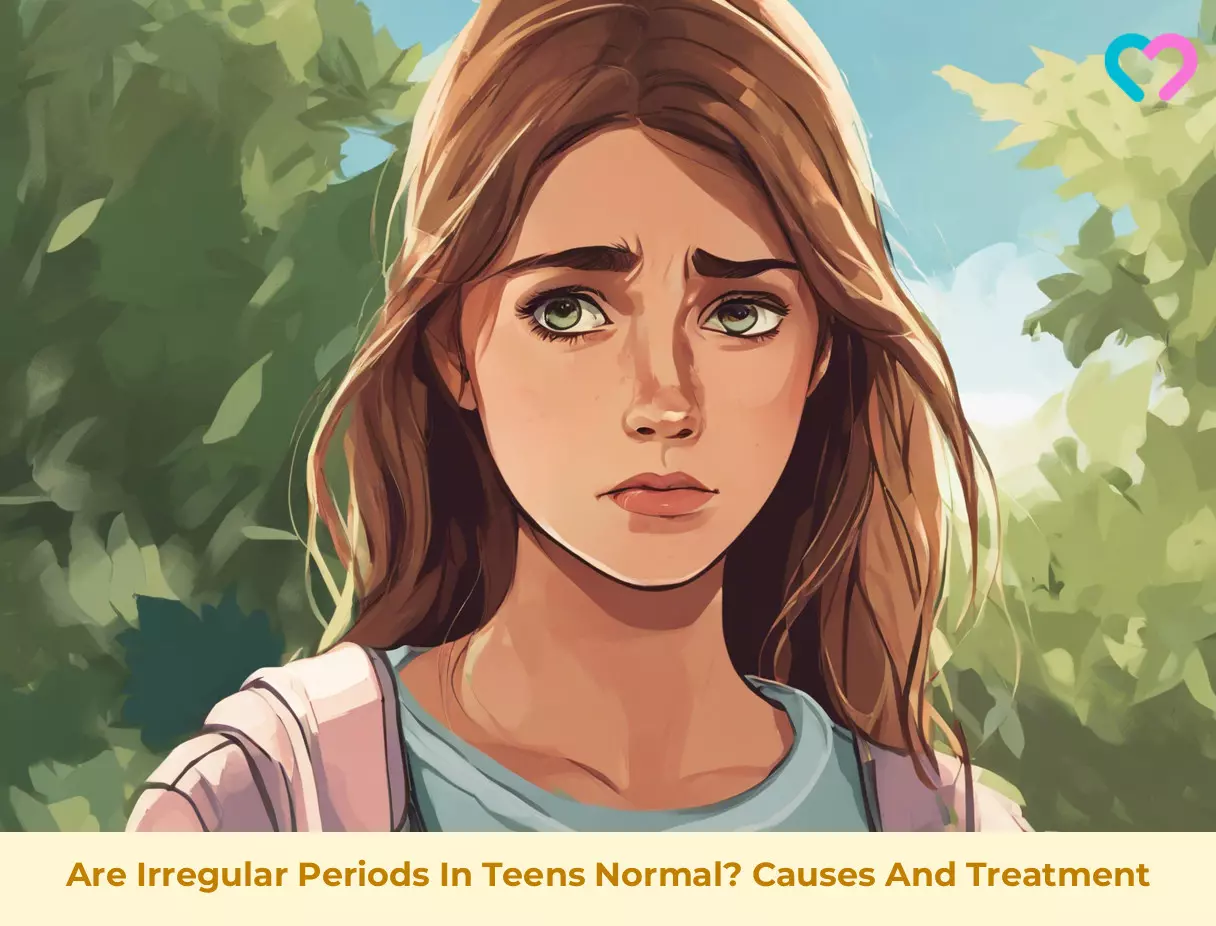
Image: Stable Diffusion/MomJunction Design Team
References
1. Period problems; Women’s Health; The United States Department of Health & Human Services
2. Paula J. Adams Hillard; Menstruation in Adolescents: What’s Normal?; The Medscape Journal of Medicine (2008).
3. Menstruation in Girls and Adolescents: Using the Menstrual Cycle as a Vital Sign; The American College of Obstetricians and Gynecologists
4. Diane Sacks; Common menstrual concerns of adolescents; Pediatrics Child Health (1998).
5. What are the common treatments for menstrual irregularities?; The Eunice Kennedy Shriver National Institute of Child Health and Human Development
6. Exercise, diet & periods; The Royal Women’s Hospital; Victoria Australia
7. Amenorrhea in teens; University of Rochester Medical Centre
8. Managing Menstruation with Hormonal Contraceptives; Children’s Hospital of Philadelphia
9. Irregular periods; Cleveland Clinic
Community Experiences
Join the conversation and become a part of our nurturing community! Share your stories, experiences, and insights to connect with fellow parents.
Read full bio of Dr. Neema Shrestha
Read full bio of Dr Bisny T. Joseph
Read full bio of Swati Patwal
Read full bio of Anindita Ghatak












